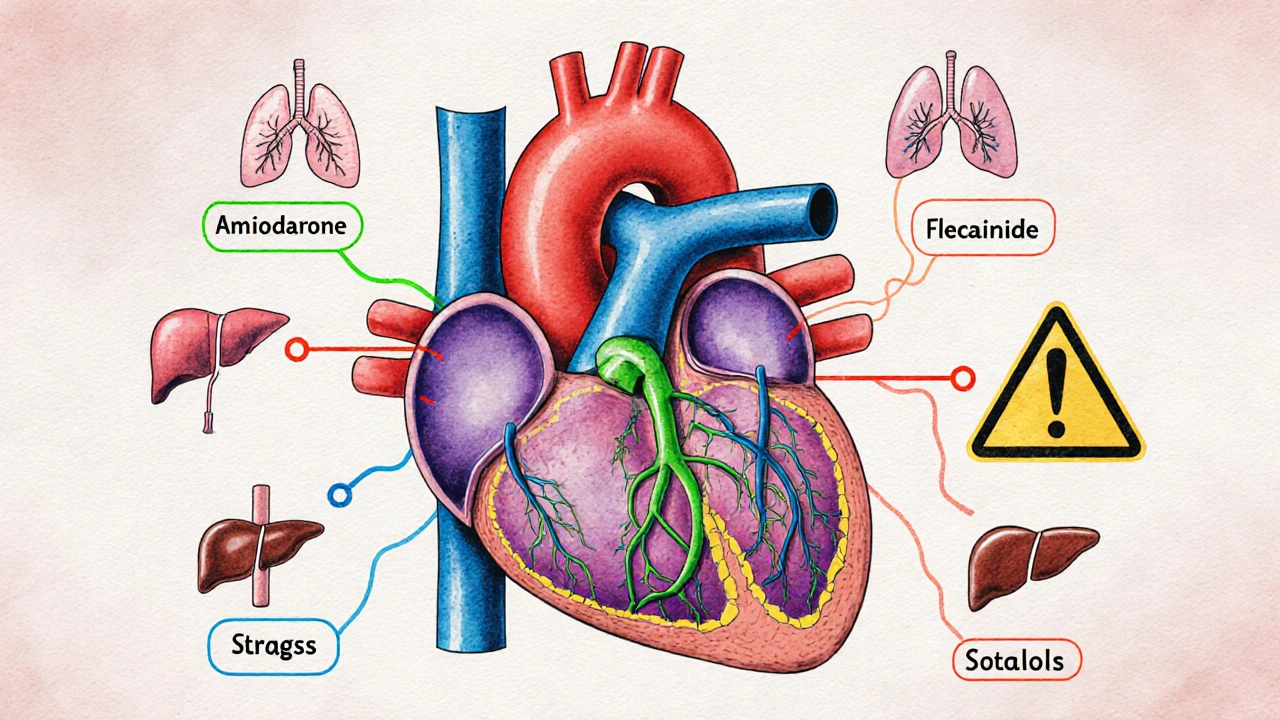Heart Rhythm Meds: What They Are, How They Work, and What You Need to Know
When your heart skips, races, or beats unevenly, it’s often due to an arrhythmia, a condition where the heart’s electrical signals don’t work properly, causing irregular beats. Also known as heart rhythm disorder, this isn’t always dangerous—but when left unchecked, it can lead to stroke, heart failure, or sudden cardiac arrest. That’s where antiarrhythmic drugs, medications designed to restore or stabilize normal heart rhythm come in. These aren’t just one-size-fits-all pills; they’re targeted tools that work differently depending on the type of arrhythmia you have.
Some heart rhythm meds slow down electrical signals in the heart, others block certain ions like potassium or sodium, and a few even affect the nervous system’s control over your heartbeat. Common ones include amiodarone, metoprolol, flecainide, and dofetilide. But here’s the catch: what works for one person might be risky for another. For example, some drugs can cause QT prolongation, a dangerous change in the heart’s electrical recovery time that can trigger life-threatening rhythms. That’s why doctors don’t just pick a drug based on symptoms—they look at your full medical history, kidney and liver function, other meds you’re taking, and even your genetic profile. It’s not just about stopping the flutter—it’s about doing it safely.
Many of the posts in this collection focus on how medications interact with each other, how side effects sneak up on you, and why custom solutions sometimes matter more than off-the-shelf pills. You’ll find real talk about how herbal supplements can interfere with heart rhythm meds, how generic versions compare to brand names, and why some people need compounded formulas when standard doses don’t fit. There’s also advice on spotting early warning signs of bad reactions, understanding insurance hurdles for these drugs, and knowing when to push back if something doesn’t feel right. This isn’t just a list of pills—it’s a guide to staying in control when your heart won’t cooperate.
Whether you’re newly diagnosed, managing a long-term condition, or caring for someone who is, the goal here is simple: help you ask better questions, spot red flags faster, and make smarter choices with your doctor. Heart rhythm meds can be life-saving—but only if you understand them well enough to use them right.

- 11 Comments
Amiodarone is highly effective for dangerous heart rhythms but carries serious long-term risks. Learn how it compares to other antiarrhythmic drugs, when it's truly needed, and safer alternatives that may work better.
